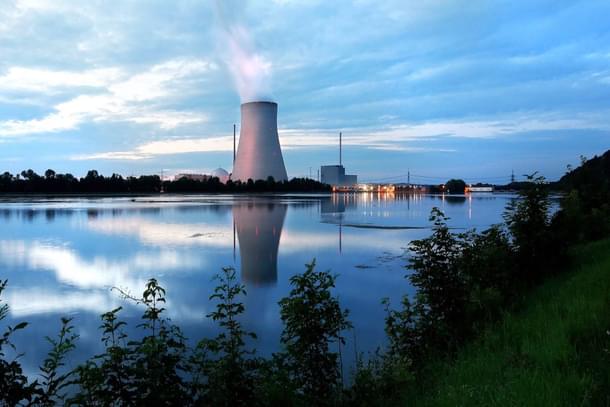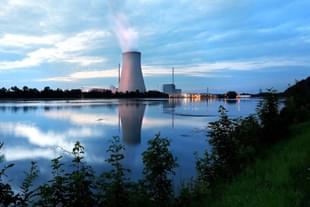Infrastructure
BHEL To Collaborate With EDF France On Jaitapur Plant Even As Nuclear Liability Issues Remain Unresolved
Amit Mishra
Nov 29, 2023, 04:30 PM | Updated 04:30 PM IST
Save & read from anywhere!
Bookmark stories for easy access on any device or the Swarajya app.


State-owned engineering firm Bharat Heavy Electricals Limited (BHEL) has signed a Memorandum of Cooperation (MoC) with the French company Électricité de France (EDF) to explore the opportunity to maximize the local content for the Jaitapur nuclear power project in Maharashtra.
In regulatory filings with the NSE and the BSE, the BHEL said that it will “explore the opportunity to maximise the local content of the JNPP”, being set up by the Nuclear Power Corporation of India Ltd. (NPCIL).
Proposed to be setup at Jaitapur in Ratnagiri district of Maharashtra, the JNPP would comprise six European Pressurised Reactions (EPRs) of 1,650 MWe each, which would make it the largest nuclear power plant in the world, with a total capacity of 9.6 GW.
Over a decade ago, the United Progressive Alliance (UPA) government initiated the idea of importing six EPR nuclear plants. However, the project had made little progress due to concerns about the economics and safety of the EPRs, local opposition, and the collapse of the initial French corporate partner, Areva.
Finally, it was in March 2018, when EDF and the NPCIL, a state-owned enterprise under the Department of Atomic Energy, signed an “industrial way forward” agreement in the presence of Prime Minister Narendra Modi and French President Emmanuel Macron, prescribing a way forward for the implementation of the Jaitapur nuclear power project.
According to the agreement, the French side will offer an economically competitive financing package and ensure a steady supply of fuel throughout the operational lifespan of the Jaitapur nuclear power plants.
Moreover, the agreement specified cooperation in the transfer of technology and cost-effective localization efforts for manufacturing in India - latter including mutual agreement on the transfer of technology rights.
After 11 years of being on the drawing board, the project made a major headway in April 2021, when EDF submitted to NPCIL its binding techno-commercial offer to build six reactors at Jaitapur.
However, since then, the project has remained stuck over several issues, including liability, high cost of power per unit among others.
According to an EDF official, the issue, arising from India’s Civil Liability for Nuclear Damage Act that India passed in 2010, remains an item on the “agenda for both countries”.
The Civil Liability for Nuclear Damage (CLND) Act 2010, brought in addition to the International Convention on Supplementary Compensation (CSC), is perceived as overly stringent by foreign companies, due to the potential liability of having to pay hundreds of millions of dollars in the event of a nuclear accident.
Consequently, despite having entered into civil nuclear agreements with various countries, including the U.S., France, and Japan, the only foreign involvement in India is that of Russia in Kudankulam, projects that predate the Law.





